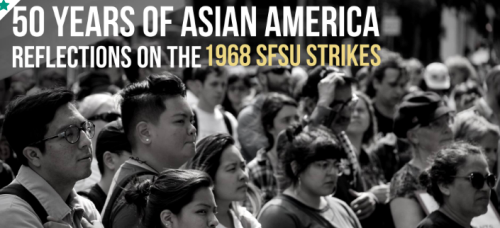 Views from the Edge
Views from the Edge2018 marks the anniversary of three important chapters in American history that are often neglected or skipped over in U.S. history classes.
FANHS encourages particular attention to the following events, which have both shaped the Filipina/o/x American experience. FANHS also reminds everyone that the month is HISTORY month, not “Heritage” month. “History” encompasses the experiences and events that have shaped our lives, as well as culture and heritage.
In 2018, we will celebrate the 120th Anniversary of the declaration of Philippine independence from Spain in 1898 and mark (not celebrate) the 120th Anniversary of the Spanish-American War. Spain and the U.S. engaged in a brief war in May, 1898 when it was believed that a U.S. ship, The USS Maine, was bombed by the Spanish in Havana Harbor.
Meanwhile, Emilio Aguinaldo, leader of the Philippine Revolutionary forces, declared independence from Spain on June 12, 1898 and proceeded to establish the First Philippine Republic. Despite this, in the Treaty of Paris, signed on December 10, 1898, Spain sold its remaining colonies – the Philippines, Puerto Rico, Guam – to the United States for $20 Million, marking the end of the once-sprawling Spanish Empire and the beginning of the American Empire.
The treaty marks the beginning of US colonial control and an American military presence in the Philippines that lasted formally until 1946 and continues to this day. A brutal Philippine-American War followed from 1899-1913, in which the Philippine Republic battled US forces for control of the archipelago. One million Filipinas/os died in the Philippine-American War.
Filipinos were classified as “nationals” and their entry to the U.S. was not restricted. This was the catalyst for the 20th century migration of millions of Filipinas/os across the American empire to Hawai’i, Guam, and the US mainland.

2018 marks the 50th Anniversary of the establishment of Ethnic Studies at San Francisco State University, and at UC Berkeley and UC Davis, the result of student protests in which Filipino Americans played a significant role.At San Francisco State University, the Pilipino American Collegiate Endeavor (PACE), joined with the Black Student Union, Latin American Student Organization, La Raza, Asian American Political Alliance, Pilipino American Collegiate Endeavor, and Native American Students Union at San Francisco State University to form the Third World Liberation Front (TWLF).
Students’ experiences were shaped by the civil rights, anti-war, and feminist movements. The student strike the TWLF organized that began on November 6, 1968 and ended in March, 1969, was the longest student strike in American history. Students demanded open admissions of students of color and a relevant, student-centered and community-based curriculum which challenged the Eurocentric curriculum which reflected Western values and canons.
At San Francisco State, these efforts resulted in the establishment of the nation’s first College of Ethnic Studies and the first Filipino American Studies courses. Parallel efforts at UC Berkeley and UC Davis resulted in the establishment of ethnic studies at those campuses. Ethnic Studies classes and programs now proliferate across the nation. The now-thriving discipline of Filipina/o/x American Studies was borne from the struggle for Ethnic Studies.
October was chosen as the month to celebrate Filipino American history. It was Oct. 15, 1587, when “Luzones Indios” stepped on the shores of North America. They came as part of the crew of the Spanish Galleon, Nuestra Señora de Esperanza and landed at what is now Morro Bay, California.
In 2009, U.S. Congress recognized October as Filipino American History Month in the United States. Various states, counties and cities in the U.S. have established proclamations and resolutions declaring observance of Filipino American History Month. The late Dr. Fred Cordova, along with his wife, FANHS Founder Dr. Dorothy Laigo Cordova, first introduced October as Filipino American History Month in 1992 with a resolution from the FANHS National Board of Trustees.
AsAmNews has Asian America in its heart. We’re an all-volunteer effort of dedicated staff and interns. Check out our Twitter feed and Facebook page for more content. Please consider interning, joining our staff or submitting a story.



